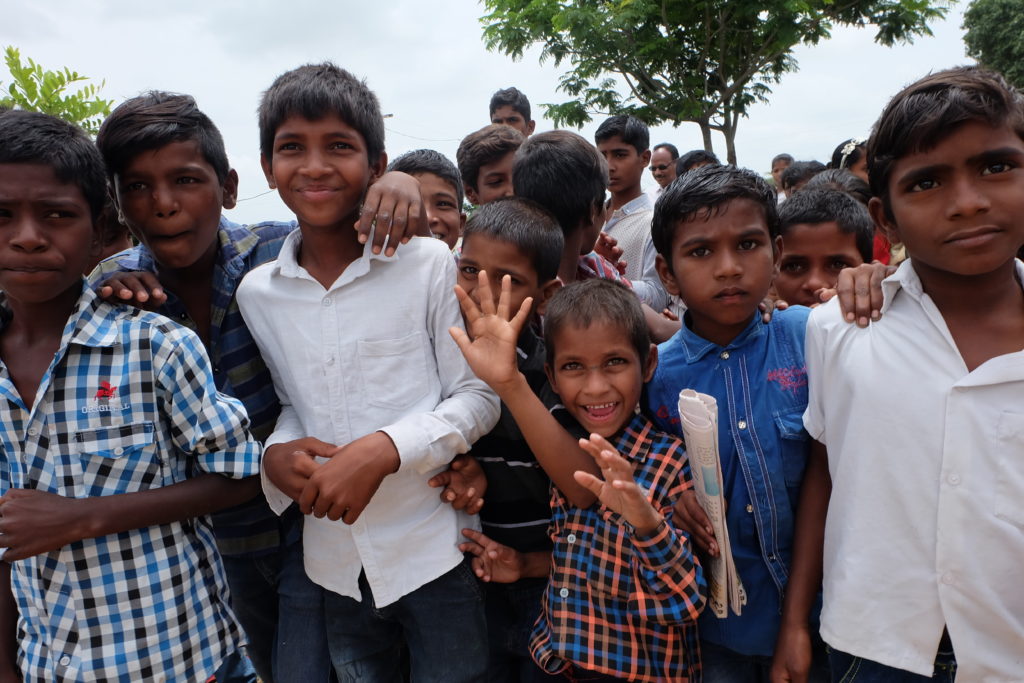When parents aren’t able to provide adequately for their children, kids are subjected to health issues such as malnutrition and insufficient healthcare, which can lead to increases in school absences, tardiness rates, incidents of illness during class, and untreated health problems. Children from impoverished families are also more likely to be admitted to the hospital, which further increases the number of days on which they are absent from school. Poor families suffer from increased infant mortality rates, and poor children are more vulnerable to frequent and severe chronic diseases, like asthma, and they receive fewer immunizations.
Global child poverty and health facts
– Maintaining good hygiene and wearing shoes are kids’ best defenses against life-threatening parasites
– More than 300 million children are chronically hungry, and more than 90% of those children suffer from long-term malnourishment and nutrient deficiency
– Every year, 3.1 million children (an average of 8,500 children per day) die due to poor nutrition
More than 300 million children are chronically hungry, and more than 90% of those children suffer from long-term malnourishment and nutrient deficiency.
National child poverty and health facts
– Poor children have increased infant mortality rates, more frequent and severe instances of chronic diseases such as asthma, poorer nutrition and growth rates, less access to quality healthcare, lower immunization rates, and increased obesity rates and the complications that accompany them
What Children Incorporated is doing to support children’s health
By providing children with basic needs such as adequate clothes, shoes, hygiene items, and food, Children Incorporated supports their overall welfare. These essentials, which we help to provide to children in need on a monthly basis, are vital to a child’s growth and health, and inevitably to their success in school.
How you can help
You can help a child living in poverty in a few different ways. One is through our child sponsorship program. For $35 a month, you not only help meet the basic and critical needs of a child, but you also make an investment in their future.
Our policy has always been to consider the needs of each sponsored child on an individual basis, including when it comes to their health. We work closely with our volunteer coordinators at our project sites, who are familiar with each individual circumstance and the needs of every child in their care. Sponsorship donations are sent to our projects – orphanages, homes, community centers, and schools – at the beginning of each month in the form of subsidy stipends. Our onsite volunteer coordinators use the funds to purchase basic and education-related items for children in our program to ensure that they have what they need to do their very best and succeed in school.
You can also help children in need in the area of health by donating to our Mosquito Net Fund. In Kenya, Ethiopia, Sri Lanka, and India, children need mosquito nets to protect them from mosquito-borne illnesses so that they’ll be healthy enough to attend school. Each year, we purchase thousands of nets, thanks to donors to our Mosquito Net Fund, which we distribute to our sponsored and unsponsored children and their families.\
***
HOW DO I SPONSOR A CHILD WITH CHILDREN INCORPORATED?
You can sponsor a child with Children Incorporated in one of three ways – call our office at 1-800-538-5381 and speak with one of our staff members; email us at sponsorship@children-inc.org; or go online to our donation portal, create an account, and search for a child that is available for sponsorship.
References:
http://nccp.org/topics/childpoverty.html
http://nccp.org/publications/pub_1194.html
United Nations Inter-agency Group for Child Mortality Estimation (UN IGME). “UNICEF: Committing to Child Survival: A promise renewed.” UNICEF, 2014. Web Accessed February 25, 2015.
http://www.feedingamerica.org/assets/pdfs/fact-sheets/child-hunger-fact-sheet.pdf
https://www.dosomething.org/us/facts/11-facts-about-education-and-poverty-america

